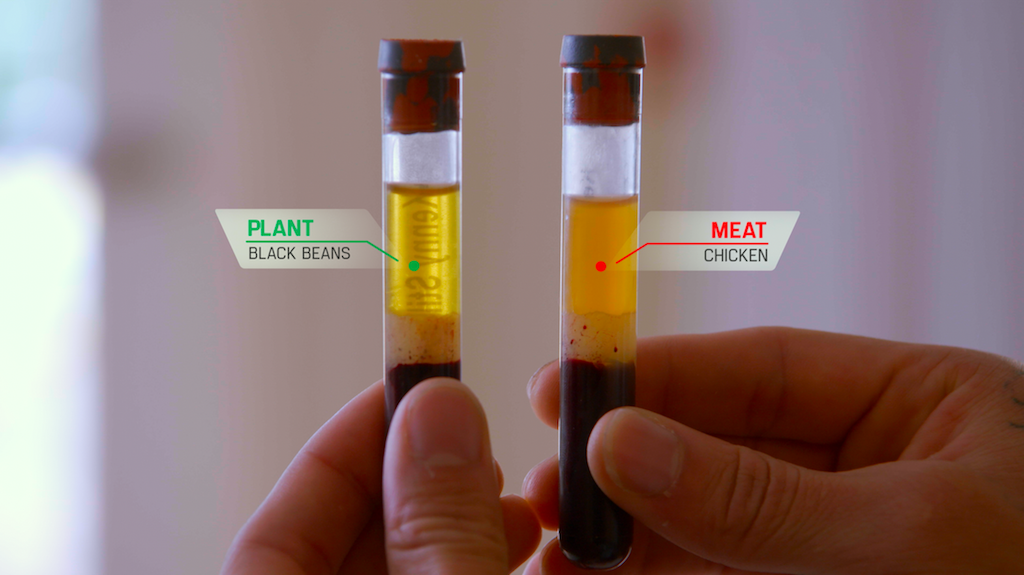Nearly Three Quarters Of Men Would Rather Have Shorter Life Expectancy Than Give Up Meat, Poll Finds
4 Mins Read
A new survey has found that almost three quarters of men would rather reduce their life expectancy by an entire decade than give up meat consumption, underlining the stronghold that meat-eating and masculinity continues to have over consumers as a barrier to healthier dietary change. Organisers of the Australian poll, No Meat May, hope that their campaign will drive greater education and awareness about the benefits of meat-free lifestyles.
Commissioned by the Australian nonprofit No Meat May, a campaign that challenges participants to eliminate meat for all 31 days in the month of May, a new poll finds that the unfounded concept linking meat-eating, masculinity and physical strength is preventing men from trying out a healthier and sustainable diet.
Involving 1,000 adult participants in Australia, the poll found that 73% of men would rather reduce their life expectancy by 10 years than removing meat from their diet, while 47% of all female and male respondents perceive meat consumption as a “masculine undertaking” – even as documentaries such as The Game Changers have sought to break down the myth that meat is necessary for optimal physical performance.
“What was perhaps most shocking was that…three quarters of men [were] not convinced of the health benefits of a meat-free diet, despite the mounting evidence to the contrary,” said No Meat May co-founder Ryan Alexander.
“Significant research over many years has shown that eating meat and other animal products increases the risk of developing certain cancers, heart disease, obesity, and having a reduced life expectancy, not to mention being one of the biggest contributors to global warming and the destruction of our environment,” Alexander continued.

Our survey alarmingly shows that Australian men are either not aware of any of these facts, don’t believe them, or simply don’t care.
Ryan Alexander, Co-Founder, No Meat May
In March, a landmark large-scale population-level study in the U.K. found an association between meat consumption and nine non-cancerous illnesses – many of them not considered in previous research, including pneumonia, diverticular disease, colon polyps and diabetes.
These findings build on long known research linking meat consumption to higher risks of cancers, with the World Health Organisation (WHO) listing red meat and processed meat as groups 1A and 2A carcinogens respectively.
Meanwhile, plant-based diets are linked to positive health outcomes, with a U.S. National Cancer Institute study concluding an “inverse association” between higher consumption of plant-based foods and heart disease mortality rates.
The No Meat May survey also asked participants about their views on climate change, and found that as many as 81% say they actively care about the issue and the environment. However, 79% said they would not eliminate meat from their diets to help reduce their carbon footprint.
“Our survey alarmingly shows that Australian men are either not aware of any of these facts, don’t believe them, or simply don’t care,” commented Alexander.
In light of these findings, No Meat May hopes to change the stigma around meatless diets with their campaign, which seeks to educate people about the multitude of health, planetary and animal welfare benefits of plant-based diets.

We reckon it’s time to step up and reject outdated and damaging gender stereotypes around food.
Ryan Alexander, Co-Founder, No Meat May
As part of their initiative, the nonprofit provides support to pledgers who wish to test a meat-free lifestyle, much like the British campaign Veganuary, which has had great success in promoting long-term dietary change among its participants after they complete the January challenge.
There is some hope in recent figures, which indicate an uptick in alternative protein sales in Australia, with a recent Food Frontier analysis reporting 46% year-on-year growth in plant-based retail sales, while the industry’s manufacturing revenues in the country increased from AU$35 million to AU$70 million (approx. US$27 million to US$54 million).
Even plant-based giant Impossible Foods is hoping to capitalise on the plant-based trend in the Australian market, signaling its entry in the coming months with a new job listing for a manager in the region.
“We reckon it’s time to step up and reject outdated and damaging gender stereotypes around food,” said Alexander.
“It’s never been easier to give up meat and whether you’re giving up for a month, or looking to make a long-term change, No Meat May is here to provide that safe stepping-stone, evidence-based information, and a tonne of food inspiration to help you along the way.”
Lead image courtesy of Unsplash.




